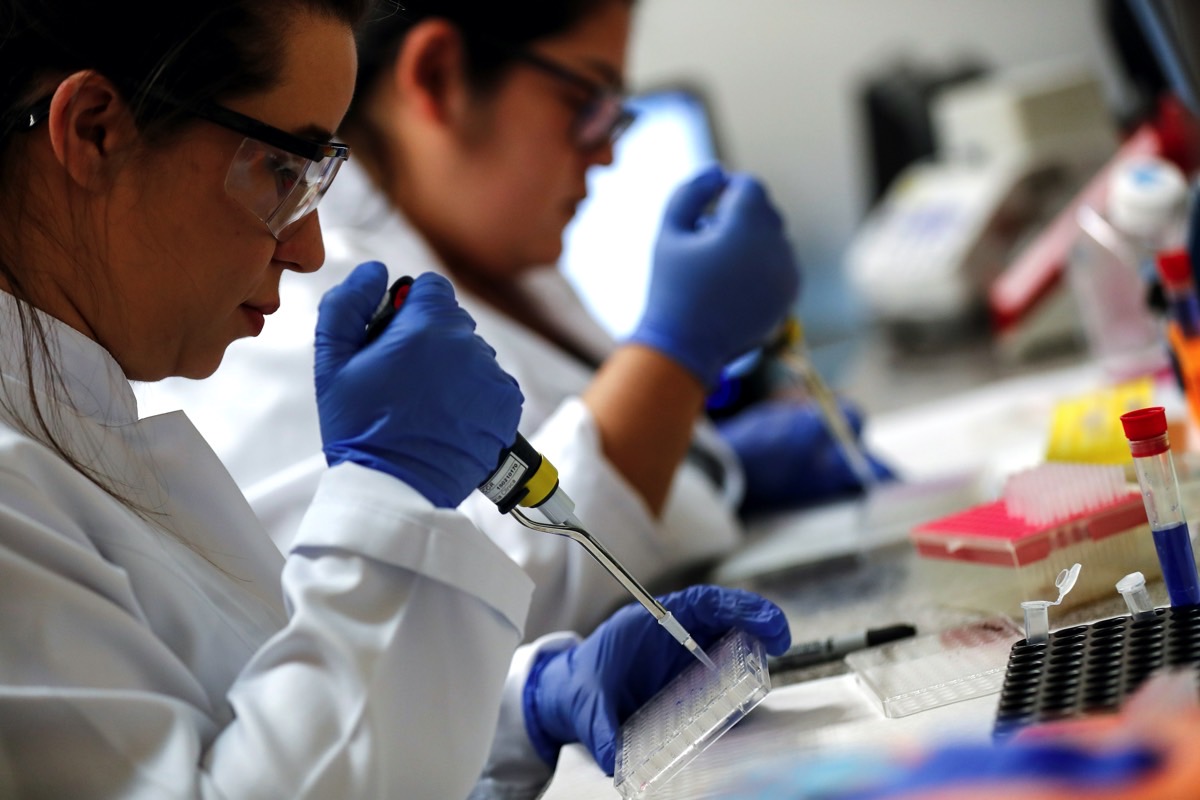- The novel coronavirus outbreak can be controlled with strict social distancing measures combined with extensive testing that maps out the severity of the outbreak.
- A second test should be performed on recovered patients to test for COVID-19 immunity.
- The test could help governments reduce restrictions on certain regions as patients who recovered could return to work without risking reinfection.
- Visit BGR’s homepage for more stories.
How long can the US economy remain shut down because of the coronavirus? As long as it takes, say many health experts. Until Easter, President Trump wishes. Like him, many officials around the world may be worried that strict lockdowns and quarantines will have a massive impact on the economy the longer they run. The UK famously attempted herd immunity before realizing the strategy was doomed to kill countless COVID-19 patients. It pivoted towards social distancing in an attempt to flatten the curve of the novel coronavirus.
The longer we stay indoors and avoid others, the more time we buy for those who are infected and need hospitalization. Time also works in favor of medical systems and governments that are scrambling to deal with the pandemic. More personal protective gear, more ventilators, and more tests for the novel coronavirus are needed, as well as measures to support the millions of people that lost their jobs over the past few weeks.
It turns out a test to detect the COVID-19 virus early isn’t the only one we need, though. There’s a second test that would not only signal that it’s safe to restart the economy, but would also help us to determine whether we’ll have to fight SARS-CoV-2 ever again. Tt’s also a test could save lives. It’s the immunity test.
There are two ways to become immune. One is immediate: You get infected, your body fights off the disease by itself or with the help of medical care, and you recover. Scientists have already proven that the immune system fights the virus just like the flu in mild-to-moderate cases. A different study showed that monkeys who recovered from COVID-19 will not develop the illness after coming in contact with the novel coronavirus a second time. The other method is to acquire immunity via a vaccine or a plasma transfusion from a survivor. Vaccines are at least a year out, while plasma treatments aren’t widely available for the time being.
The more people that are immune, the less likely it is for others to get infected, and the faster the economy can reopen. However, we still have no idea how long SARS-CoV-2 immunity will last. We need more time to study that aspect of COVID-19. It may be a short-lived immunity, as is the case with immunity after the flu. Or it may last for years. We just don’t know.
Therefore, the second COVID-19 test we need is a blood test that can quickly discover whether you have antibodies for the novel coronavirus. Those tests should be administered en masse in the future, to all survivors, whether they recovered at home or were assisted by medical professionals. But such tests don’t exist yet.
Serological tests looking for specific antibodies linked to coronavirus immunity are in development, and are already being deployed on a large scale in Singapore. The country is in a unique position to afford widespread COVID-19 testing as well as immunity testing. More populous countries like the US will need a larger number of tests.

Plenty of tests are already in the making, Wired reported a few days ago. But these tests need to be perfect to avoid any kind of false results.
“We’re currently looking at one assay from the US, two from Europe and two from China,” Mayo Clinic clinical microbiology director Elitza Theel said. “There’s a need for this, so once we identify one we think is suitable, we’ll begin offering the testing.” She explained these tests should only be performed on recovered patients, anywhere between 8 and 11 days after the infection, so that antibodies can be detected.
Once an immunity test is chosen and deployed, the people fighting on the front lines should be tested for immunity. “Those people could then safely perform essential functions within the community without fearing re-infection,” Harvard School of Public Health professor of epidemiology Marc Lipsitch said. “That’s the first and maybe the most important thing.”
How long the immunity will last is another question serological testing will answer. Those who were infected with SARS were immunized for 8 to 10 years. MERS survivors, however, got much shorter protection. University of Texas Medical Branch at Galveston virologist Vineet D. Menachery told The New York Times that immunity to the new coronavirus may last at least one to two years. Although this is not guaranteed.
Mount Sinai Icahn School of Medicine microbiologist Florian Krammer believes that COVID-19 survivors will experience a milder secondary case in the future, even if the immunity doesn’t last long. “You probably would make a good immune response before you even become symptomatic again and might really blunt the course of the disease,” he said.
These coronavirus immunity tests may be used at home by anyone who thinks they survived a COVID-19 infection, and that would be the best use-case scenario, as long as this sort of testing is widely available. Per The New York Times, officials of Public Health England said they purchased millions of such tests and were evaluating them for use at home.
Aside from confirming immunity, the antibodies harnessed from blood donors who have recovered from COVID-19 can be used to treat existing patients. New York is the first state to attempt COVID-19 therapies using plasma from survivors. Scientists will also have to keep retesting COVID-19 immunity in some patients until a vaccine is widely available to see how long the antibodies last.








